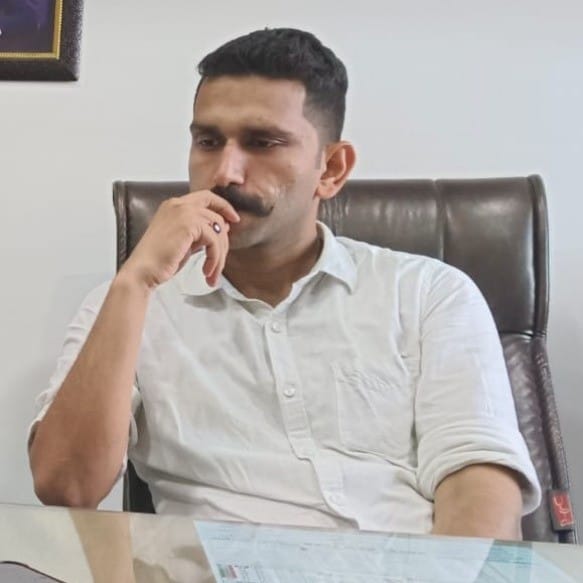“Right to compassionate appointment is not inherent.” Citation: Civil Appeal

Legal AI associate for drafting & compliance
“Right to compassionate appointment is not inherent.”
Citation: Civil Appeal No. 8564 of 2015
Date of Judgement: 29th September, 2020
Bench: Sanjay Kishan Kaul (J), Aniruddha Bose (J), Krishna Murari (J)
Facts:
- Shri Ranglal Shrivas was employed as a work- charged/ contingency in the Tribal Welfare Department, Bhind, Madhya Pradesh on 6th June, 1984.
- He was made permanent on 12th March, 1987, and paid salary at a regular pay- scale with revision of pay and promotion from time to time.
- He died on 11th December, 2009, while on service. Under Madhya Pradesh Civil Pension Rules, 1976, a Pension Payment Order (PPO) was issued in favour of the family on the basis of his last pay- scale and grade pay.
- Respondent filed an application seeking the benefit of compassionate appointment which was rejected by department by order dated 19th August, 2010.
- Rejection was based upon the Clause 12.1 of the Policy for compassionate appointment dated 18th August, 2008 issued by General Administration Department Ministry, Madhya Pradesh Government[1], which provides for a compassionate grant of Rs 1,00,000/- to the nominated dependant of such an employee.
- The rejection was appealed before High Court of Madhya Pradesh, Gwalior Bench.
Decision of the Single Judge of High Court:
Appeal was allowed on 19th July, 2013 and held that employee who had been serving for more than 15 years would have the status of a permanent employee under Rule 2(c) of the Madhya Pradesh (Work Charged and Contingency Paid Employees) Pension Rules, 1979[2]. Court also held that Clause 12.1 would apply to such employees who had not attained permanency and is inapplicable for compassionate appointment.
Decision of the Division Bench of High Court:
Appeal was made on the ground of Rule 2(b) of Madhya Pradesh Civil Service Conduct Rules, 1965[3] and emphasizing that compassionate appointment is not an inherent right but a prerogative of the state.
Appeal was dismissed on 2nd January, 2014 by stating that Late Mr. Ranglal Shrivas was a permanent employee as per the Madhya Pradesh (Work Charged and Contingency Paid Employees) Pension Rules, 1979.
Decision of the Apex Court:
Court following the similar approach as adopted in Punjab State Power Corporation Limited & Ors. v. Nirval Singh[4], uses its power under Article 142 of the India Constitution, and applied the amendment to the policy of 18th August, 2008 vide circular dated 29th September, 2014. The appeal was allowed as Ranglal Shrivas was not a regular employee and compassionate grant was increased from Rs 1,00,000/- to Rs 2,00,000/-.
Key legal points established in the case:
- Whether Ranglal Shrivas was a “regular employee” in the Tribal Welfare Department?
No
Court held that Late Ranglal Shrivas was a work- charged employee, who attained the status of a permanent employee on account of having completed 15 years of service, which entitled him to certain benefits including pension and krammonati. But this does not give him the status of a regular employee.
Court referred to Ram Naresh Rawat v. Ashwini Ray & Ors.[5], in which “permanent employee” and “regular employee” were distinguished and it was held that permanent employee has right to receive pay in the graded pay- scale, but only minimum of the said pay- scale with no increments. Only a regular employee is entitled to grant of increments in the pay-scale.
In the present case, however, krammonati and increments were given to Late Ranglal Shrivas but order dated 7th February, 2002 granting such benefits specified that this would not affect the posts of such employees. Hence, Late Ranglal Shrivas was a permanent employee and not a regular one.
- Whether a claim for compassionate employment under a scheme of a particular year could be decided based on a subsequent scheme that came into force much after the claim?
No
Court referred to Indian Bank & ORs. v. Promila & Anr.[6], in which it was held that grant of family pension and payment of terminal benefits cannot be treated as a substitute for providing employment assistance. Circular dated 29th September, 2014 made amendment to policy of 18th August, 2008 and compassionate grant amount was increased from Rs. 1,00,000/- to Rs. 2,00,000/-. The dependents of deceased employees drawing a salary from the work- charged/ contingency fund were made entitled to compassionate appointment through circular dated 31st August, 2016 but it was clarified vide Circular dated 21st March, 2017 that pending cases before the date of the 31st August, 2016 Circular would be decided only in terms of the amended Policy dated 29th September, 2014.
[1] 12.1 When employees receiving salary from work charge/contingency fund and daily wager employee die, they would not be eligible for the compassionate appointment; however, Rs.1 lakh in one instalment in the name of compassionate grant shall be given to the dependent member of the family nominated by them. The amount of gratuity shall not be included in it. The payment of this amount shall be given from the salary head under the head of work charge/contingency of the concerned department.
[2] (c) “Permanent employee” means a contingency paid employee or a work-charged employee who has completed fifteen years of service or more on or after the 1st January, 1974.”
[3] (b) “Government servant” means any person appointed to any civil service or post in connection with the affairs of the State of Madhya Pradesh.
Explanation. – A Government servant whose services are placed at the disposal of a company, corporation, organisation or local authority by the Government shall, for the purpose of these rules, be deemed to be a Government servant serving under the Government notwithstanding that his salary is drawn from sources other than from the Consolidated Fund of the State.”
[4] (2019) 6 SCC 774.
[5] (2017) 3 SCC 436.
[6] (2020) 2 SCC 729.



